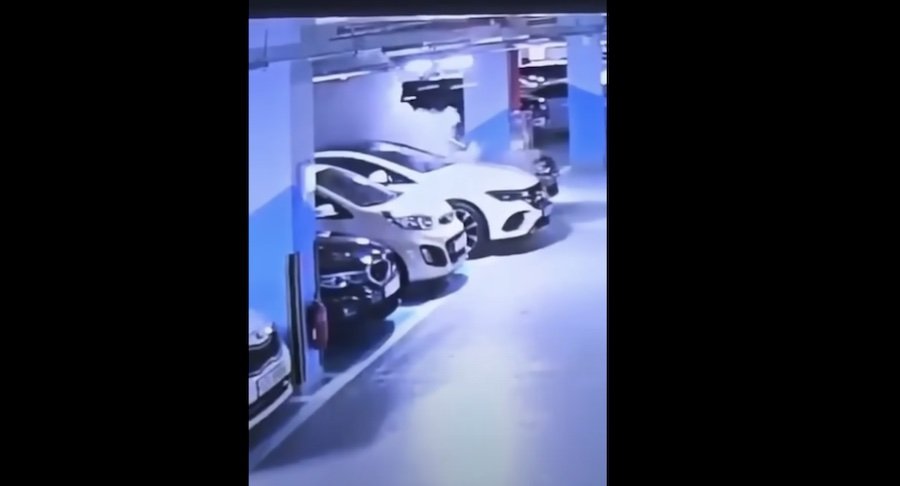Mercedes EQE's Catastrophic Fire In Underground Garage: What We Know

Even though, statistically, electric vehicles are less likely to catch fire than cars with a combustion engine. But when they do go up in flames, they can cause a lot more damage. This Mercedes-Benz EQE started showing white smoke and went ablaze seconds later in an underground parking lot in an apartment complex in the city of Incheon, which is about 20 miles west of Seoul, South Korea.
The EQE fire caused damage to some 140 cars (of which 70 had more significant damage) that were parked on the same floor, and 23 people who lived in the building above were hospitalized for smoke inhalation. According to Korea JoongAng Daily, a total of 103 people were initially evacuated from the nearby buildings after they started filling up with black smoke.
The fire was so strong that it affected the electricity grid not only in the building where it happened but for the entire building complex. Later reports said that almost 500 households were without power and water for five days after the incident.
Mercedes-Benz Korea made an initial statement, saying “We can't confirm details about the exact model and batteries at the moment” and “We are taking this very seriously and will do our best to collaborate with fire authorities to determine the exact cause.” The specific Mercedes EQE variant that caught fire has not yet been determined; it could even be the AMG model.
What we do know is that the EQE sedan that exploded didn’t have the same battery pack as the U.S. EQE models. The Korean car's nickel cobalt manganese (NCM) cells were from another Chinese supplier, Farasis Energy, which has a battery supply deal with Mercedes parent company Daimler signed in 2018. In the U.S., the EQE uses locally-made batteries from a joint venture with Envision AESC near the car's factory in Alabama.
Daimler also owns a 3% share of Farasis, with which it has a contract to jointly develop batteries for EVs and hybrids. The automaker is said to account for about half of Farais’ entire battery production. The company also supplies Chinese automaker BAIC, which had to recall 32,000 EVs in 2021 due to faulty batteries.
Mercedes also has a joint venture deal with BAIC called Beijing Benz, which assembles several models, including the EQE, in China. EQEs assembled in Germany are usually equipped with CATL batteries while those made in China primarily get Farasis cells. It has yet to be determined where this car was manufactured and if a battery fault was to blame for the fire.
All that’s left of the EQE is a bare shell, so there’s not much to go on, but it is known that the vehicle had been parked for three days and wasn’t being charged at the time.
